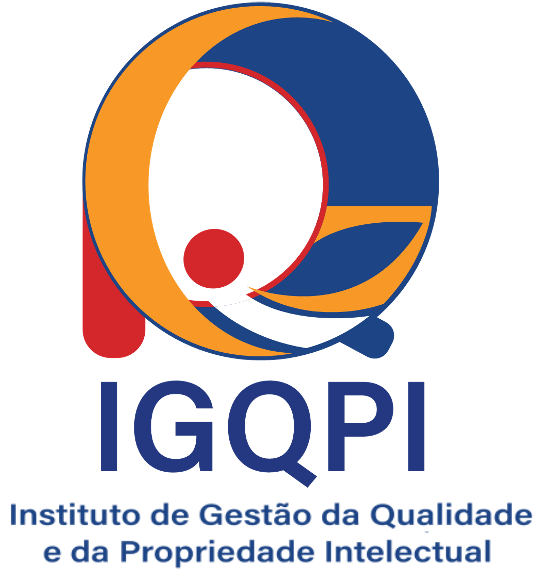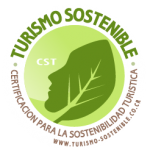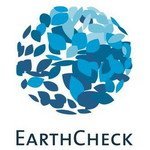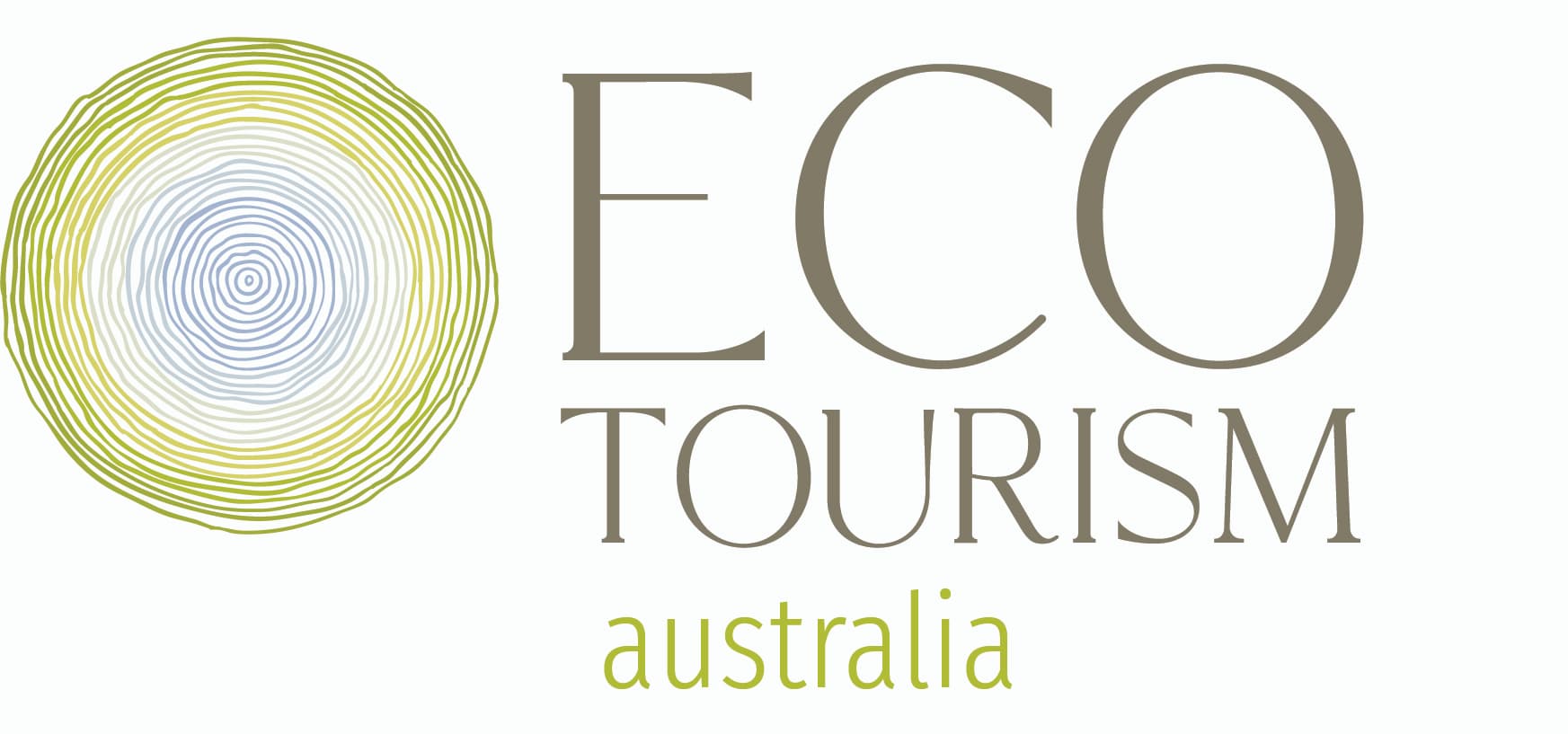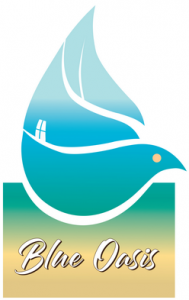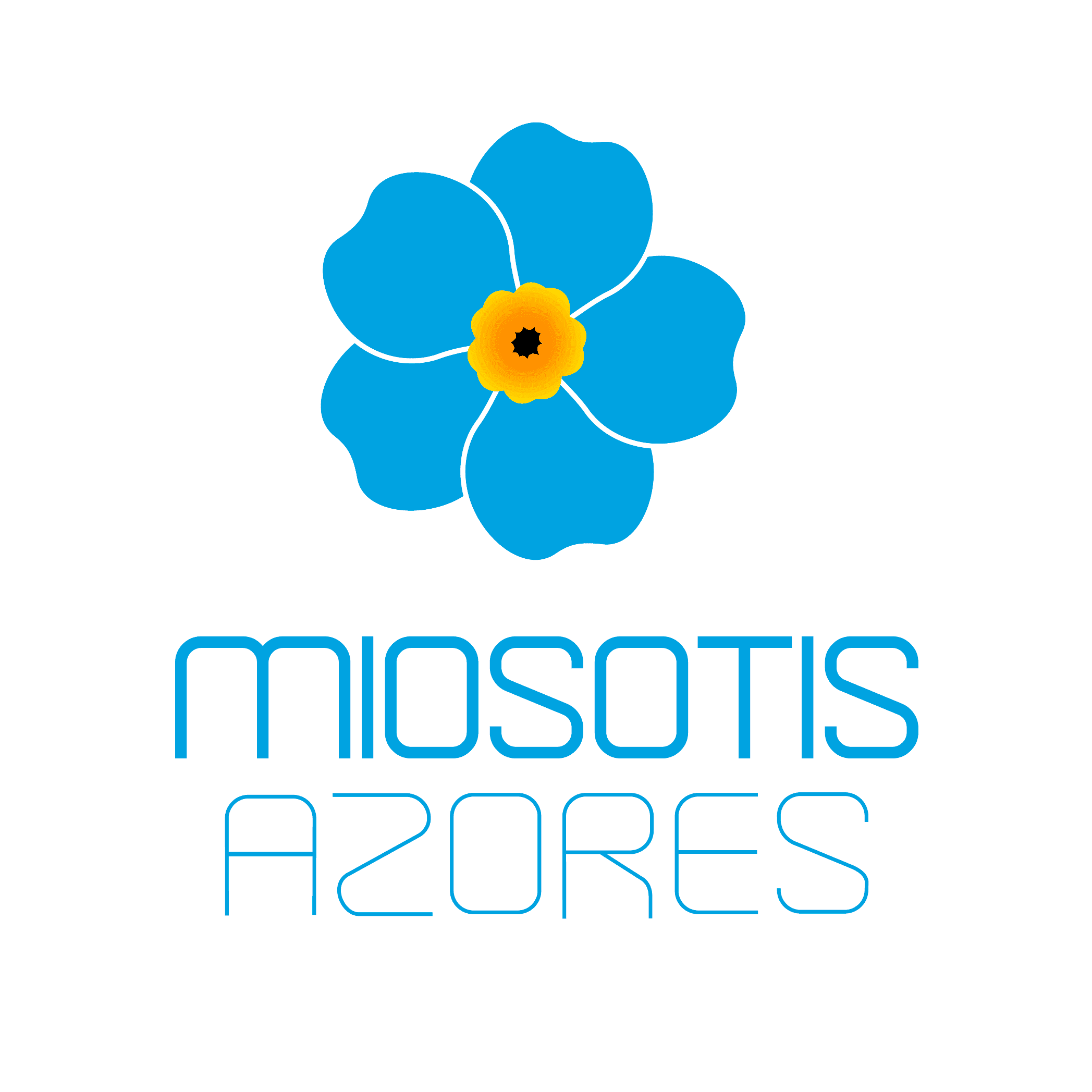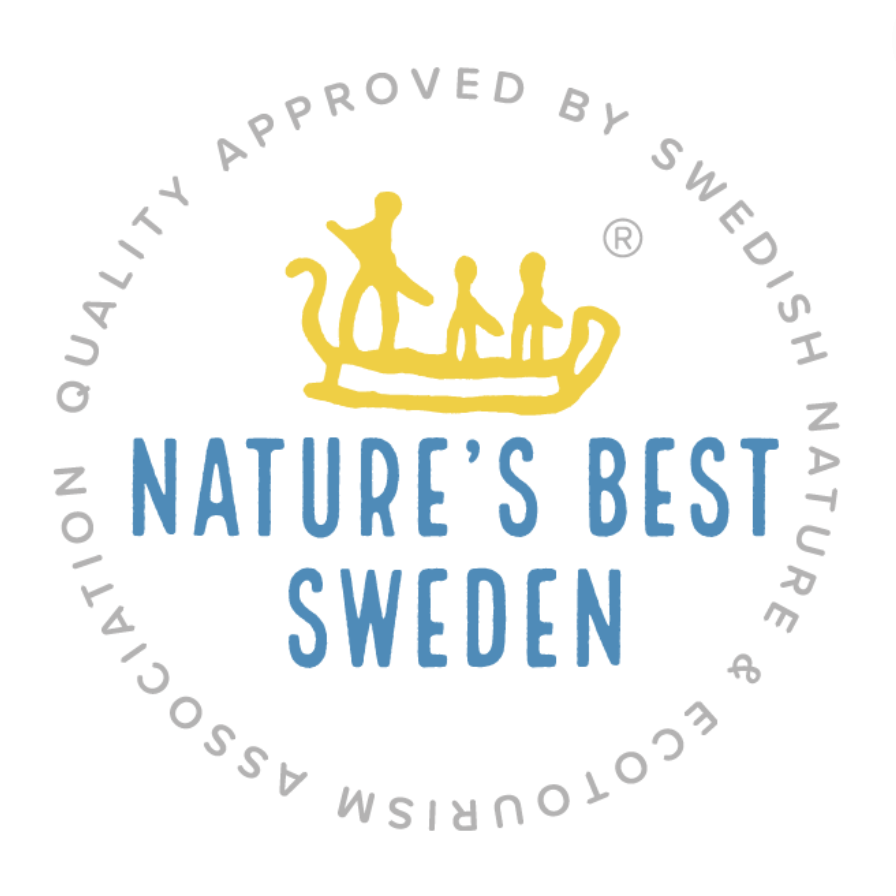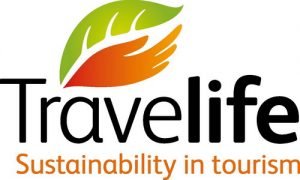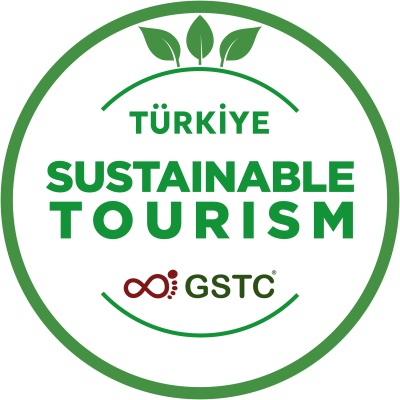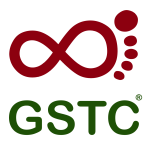Estándares Reconocidos por GSTC para Operadores Turísticos
Los Estándares Reconocidos por GSTC son estándares de turismo sostenible que se adhieren y son equivalentes a los Criterios GSTC. Esto significa que los Criterios GSTC están incluidos dentro del conjunto de estándares propiedad de un Organismo de Certificación o una organización turística local, nacional o especializada.
Reconocido por GSTC significa que un estándar de turismo sostenible ha sido revisado por expertos técnicos del GSTC y el Panel de Acreditación del GSTC, y se considera equivalente a los Criterios GSTC para turismo sostenible y es administrado por un dueño del estándar que cumple con los requisitos de los Criterios GSTC. Esto significa que el GSTC ha verificado que el estándar se alinea con los Criterios del GSTC y que cualquier cláusula adicional no contradice los requisitos de los Criterios GSTC. El Reconocimiento GSTC no garantiza que el proceso de certificación sea confiable, solo que el conjunto de estándares utilizados para certificar incluye los elementos mínimos para garantizar la sostenibilidad. Un organismo certificador que utiliza un estándar Reconocido por GSTC puede solicitar la Acreditación GSTC que se relaciona con la calidad y neutralidad de su proceso de certificación.
Los siguientes estándares han sido Reconocidos como alineados con los Criterios GSTC para Operadores Turísticos
(visita aquí los Estándares Reconocidos por GSTC para Hoteles y Alojamientos)
(visita aquí los Estándares Reconocidos por GSTC para Destinos)
NOTE:
- Esta es una lista de estándares. GSTC NO ha analizado la calidad del proceso de certificación de estos estándares , excepto aquellos que han sido acreditados por GSTC: Organismos de Certificación Acreditados por GSTC para Alojamientos y Operadores Turísticos.
- GSTC NO certifica directamente. Los Criterios GSTC aparecen en esta lista para precisar que los Organismos de Certificación que obtienen la acreditación tienen la opción de certificar utilizando su estándar Reconocido por el GSTC o utilizando los Criterios GSTC.
Actively Green Standard
The Actively Green standard is the core component used in the Actively Green Sustainable Business Training, Certification and Engagement Program. It was launched as an innovative legacy initiative of the 2015 FIS Alpine World Ski Championships in Vail and Beaver Creek, Colorado, USA through a partnership with Sustainable Travel International and Town of Vail. The program helps businesses incorporate sustainability best practices into their business and contribute to local community climate action initiatives. Another component of the Program is the Mountain IDEAL destination standard for mountain resort communities.
Adventure Green Alaska Standards
Adventure Green Alaska began in 2007 as a statewide effort to grow sustainable tourism in Alaska and promote model businesses practicing economic, environmental and social sustainability. It is Alaska’s only sustainable tourism certification program and was created entirely by volunteers. The program came under the Alaska Travel Industry Association in 2015, whose goal was to grow the program in Alaska and increase the programs credibility through the development of a new level of standards, AGA Summit, that meet the GSTC Criteria for tour operators and accommodations.
Biosphere Standard for Tour Operators
Biosphere Tourism is a standard by the Responsible Tourism Institute (RTI), an international organization that has been promoting for more than 20 years responsible tourism at an international level. Through the Biosphere brand, the RTI promotes Sustainable Development by measuring the contribution of tourism to the 17 Sustainable Development Goals (SDG) of the United Nations and the indications of the Paris Agreement against Climate Change.
Cabo Verde Sustainability Standard for Tour Operators
The Cape Verdean Standard of Sustainability for Tourism Operators was created by initiative of the Institute for Quality Management and Intellectual Property (IGQPI), to provide guidelines for Tourism Operators, so that the services provided as well as their business are based on best practices of sustainable tourism. This standard is based on four pillars: Sustainability Management System, Environmental Dimension, Social Dimension and Economic Dimension.
Costa Rica Certification for Sustainable Tourism (CST)
The Certification for Sustainable Tourism (CST), established by the Costa Rican Tourism Institute in 1997, was created to provide guidelines for hotel properties and service providers to build their business model based on the best sustainable tourism practices – the management and impact of the natural, cultural and social resources of the country. The criteria and indicators that are valued to award certification include: business management; social, cultural and economic management; environmental management; and the management of specific indicators according to category. More information on the CST program.
Chile Sistema de Distinción en Turismo Sustentable (SERNATUR)
The Chilean national system for distinction of sustainable tourism recognize the efforts of tourist accommodation that have progressed in any field of sustainability, differentiating its members over their competitors while ensuring visitors each organization’s commitment to sustainability.
EarthCheck Evaluate and Company Standard
The purpose of EarthCheck Company Standard is to provide organisations with a framework for environmental and social sustainability. This Standard includes requirements specific to other management systems, such as quality, environment, occupational health and safety, risk management and corporate social reporting, and its elements can be integrated with those of other management systems. The Standard ensures a high level of alignment to ISO14001, ISO50001, ISO26000, ISO9001, the GRI, the HCMI, the SDGs, and the GSTC Criteria. EarthCheck Evaluate assesses an operator’s economic, social and environmental impact.
Ecotourism Australia’s ECO Certification Standard
Ecotourism Australia (EA) is a non-government, not-for-profit organisation, established in 1991, that promotes and supports the eco and sustainable tourism industry in Australia through building capacity and actively promoting sustainable tourism operations and systems. Our key program – ECO Certification – was the world’s first national ecotourism certification program. We are recognised as a credible, national peak body for sustainable and nature-based tourism.
GreenStep Sustainable Tourism Standard
GreenStep’s Sustainable Tourism standard is used by GreenStep Solutions in their assessment and certification program which provides tools, resources, and consultative support to destinations and businesses across the tourism industry. The Sustainable Tourism standard enables tourism businesses to measure their sustainability performance in several key categories; management, social, economic, natural, cultural, and environmental.
Mauritian Standard on Sustainable Tourism: Blue Oasis
The Mauritian Standard on Sustainable Tourism (MS 165:2019), Blue Oasis, was developed to guide the sustainable development of the tourism industry in Mauritius.The focus of the Sustainability Tourism Standard is to address requirements of the environmental impacts and its effect on land, air, water and other organism and ecosystem of the island. The social-cultural impacts that affect local communities, social structure and cultures as well as economic impacts categorised as direct, indirect or induced. These requirements to be measured, monitored and evaluated for continual improvement of the sustainability of the tourism industry in Mauritius.
Miosotis Azores Standard
The new Recognized-Standard “Miosotis Azores” translates an upgrade to the previous award, extending its scope of action to all companies in the tourism sector and including a set of additional requirements that meet the GSTC Criteria defined by the GSTC for tour operators.
This standard aims to contribute to the commitments of the Azores as a sustainable tourist destination, so that the region remains at the forefront of sustainable development and sets an example for the world.
Nature’s Best Sweden Standard
Nature’s Best is a quality label for ecotourism that has been developed to promote sustainable tourism in Sweden. The label is awarded to companies that meet strict sustainability criteria, such as minimizing their impact on the environment, supporting local communities and economies, and providing authentic and meaningful experiences for visitors with care of natural and cultural values. The Nature’s Best label provides travelers with a trustworthy guarantee that they support sustainable tourism when choosing a Nature’s Best-labeled company.
The label was launched in 2002 by Naturturismföretagen (the Swedish Nature and Ecotourism Association)
Preferred by Nature Sustainable Tourism Standard for Tour Operators
The Preferred by Nature (Formerly NEPCon) Sustainable Tourism Standard for Tour Operators is an improved version of the former Rainforest Alliance sustainable tourism standard that is divided in three fields designed to assess any tourism organization’s performance regarding their business, sociocultural and environmental practices. The NEPCon Sustainable Tourism Standard for Tour Operators is structured around these objectives: That the biodiversity and ecosystems of tourist destinations are preserved through the implementation of environmental management systems that protect the integrity of ecosystems, promote the rational use of natural resources, the protection of biodiversity and the mitigation of various negative impacts, including those derived from climate change; That the social and cultural development of the communities involved in tourist activities improve, by reinforcing, the economic activities that they are involved in, and as a result, their livelihoods; That tourism activities are carried out fully respecting and appreciating all the local cultural expressions, while at the same time protecting and emphasizing the importance of tangible and intangible cultural heritage.
Sustainable Berlin Standard
visitBerlin promotes the sustainable development of Berlin’s tourism and events industry with the programs “Sustainable Tourism Berlin” for suppliers in the leisure tourism industry and “Sustainable Meetings Berlin” for partners from the business travel tourism industry. The 65 process-oriented criteria for the standards have been developed on the basis of internationally recognized frameworks like ISO-standards, the German national sustainability code (Deutscher Nachhaltigkeitskodex) and the GSTC Industry Criteria.
Sustainable Travel Ireland
Sustainable Travel Ireland, formerly Ecotourism Ireland, is Ireland’s leading and longest-running body for the promotion of sustainable and responsible tourism, training and certifying businesses for over 10 years. Founded in 2009, Ecotourism Ireland set out to develop ecotourism in Ireland, and to highlight the best of what the country had to offer whilst ensuring its heritage and environment were preserved for this and future generations. Today, Sustainable Travel Ireland has the same mission but broader, aiming to drive the development of a new, sustainable model for ALL tourism in Ireland, and has formally adopted the GSTC Industry Criteria to be used in Ireland by accommodations and tour operators.
TOFTigers Initiative’s Pug mark Eco Certification
The India & South Asian based nature tourism focused organisation, TOFTigers has its PUG Eco- rating certification recognised as a part of its attempts to help use the booming market in nature tourism across India and South Asia as a tool for conservation of forest and wildlife, including tigers. Alongside over 220 of the world’s best known tour operators, agents and lodge members, its promotes a purchasing supply chain campaign to promote better tourism, better training and better monitoring and advises Governments, States, parks, providers and visitors on best practice in nature tourism, to ensure a fair and equitable future for nature, visitors and bordering park communities.
TourCert Industry Criteria
All criteria catalogues of TourCert are based on the international quality and environmental management standards according to ISO and EMAS as well as the ISO guidelines for corporate responsibility (ISO 26000) and are also oriented to the international regulations of the Global Sustainable Tourism Council (GSTC).
Travelife Standard for Tour Operators & Travel Agents
The Travelife Standard for Tour Operators & Travel Agents integrates both management and performance criteria and is based on leading international sustainability and CSR standards and guidelines. The Travelife Standard is used by tour operator as a tool to improve their own sustainability as well as that of their supply chain. The standard helps to manage the full range of sustainability (based on GSTC) and Corporate Social Responsibility (ISO 26000) themes and issues: Energy efficiency and conservation; Water and waste management; Greenhouse gas emissions; Labour practices; Human rights; Community relations; Ecosystem conservation; Cultural impacts; Health and safety; Fair Business practices; Customer protection; Animal Welfare
Türkiye Sustainable Tourism lndustry Criteria (TR-I)
Türkiye Sustainable Tourism lndustry Criteria (TR-I) is the main component used in Türkiye’s Sustainable Tourism Program and have been built to ensure sustainable growth of the Turkish tourism industry. TR-I includes both criteria that comply with the social and cultural structure of Türkiye and globally recognized sustainable tourism criteria. TR-I standard was introduced under the guidance of the Republic of Türkiye Ministry of Culture and Tourism and the Türkiye Tourism Promotion and Development Agency (TGA). TR-I have adopted all GSTC Industry Criteria and will be revised according to updating period of the GSTC Criteria.
GSTC Criteria
The GSTC Criteria serve as the basis for determining whether other standards are “GSTC Recognized”. That means that by definition the GSTC Criteria can be considered “Recognized.” It also means that any Certification Body that uses the GSTC Criteria for their certification program is using a GSTC Recognized standard. Please note that GSTC Accredited means that a Certification Body uses the GSTC Criteria or another GSTC-Recognized set of standards to certify, AND has undergone a rigorous verification process by the GSTC to verify that their certification program is neutral and competent.





